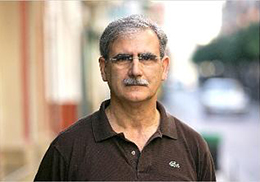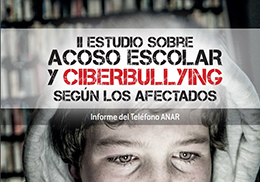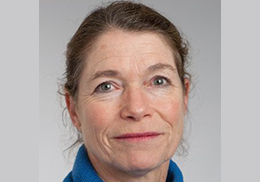
Pascual Palau has been interviewed by the Master’s Degree student Daniela Troya. Pascual Palau has worked as a psychosomatologist, is the director of the Master’s Degree in Perinatal and Child Psychology and Psychopathology and president and founder of the ASMI (Association of Child Mental Care).
26 june 2017
- When and why did you decide to focus on children’s psychosomatic care?
My curiosity around the influence the emotional world takes on us when it comes to the body’s health, and conversely has been present for years now. 25 years ago, my first personal encounter with Pierre Marty took place in a scientific sessions celebrated in Bilbao. It was because of him that I was determined to continue with my training in Paris. His passionate, original and respectful clinical look towards the body and emotional (psychosomatic) suffering of the human being coincided with my search for a referent on the field of psychosomatic medicine. Right after starting my training as a Psychosomatologist in the Pierre Marty Psychosomatic Hospital in Paris, the Pediatrics Service of the Sagunto Hospital required my help to treat a baby who was only a couple of months old and was at risk. This circumstance became the one passionate experience that helped me realise how important is specialised knowledge in perinatal and child psychosomatic medicine and also interdisciplinary work. In those days, I counted with the support of professors like León Kreisler, Rosine Debray, Miche Fain, Diane L’Heureux le Beuf, Gérard Szwec, Claude Smadja, Maria Eisenstein, Nicos Nicolaidis, André Green, etc. Those were 5 incredible years of training.
- Could you tell us something more about your therapeutic techniques with children? How are they different? What do you think about other therapeutic techniques?
My psychotherapeutic technique with babies and children includes their parents in the session, based in a sincere, playful game supported by the pleasured that is always produced in our encounters, which are both enriching and revitalizing for both parts. It is developed from a comprehensive position of the emotional world of children and their families, and from a humility and deep sense of respect towards the sensitive person I am playing with. This is the pleasure on playing with such a complex, sensitive being that suffers and from whom we must rescue their pain. This pain is frequently shared with their relatives, which always make me more human and amazed. The pleasure on our encounters is on the fact of being-with-someone, someone who is ready to play and being communicational, which is essential. This technique is the result of a reflective clinical experience that has always looked for comprehension in the sense of observed appearances once they have been looked at with the help of different theoretical models (psychoanalytic, psychosomatic, cognitivist, adherence, behaviourist, systemic, gestalt, familiar). Because of the need of getting prompt improvements or cures of different early psychopathologies, my concern has been always related to the cleansing of my therapeutic boarding and my theoretical references, confronting them in a permanent way with the clinic in each case. When treating with a body who is suffering from different grades, what matters is the proved effectiveness or tested of the different boardings. If a therapeutic boarding is not efficient, it must be revised or dismissed. The ultimate test is a theoretical boarding of its clinical effectiveness, not just in terms of a somatic improvement but also of positive changes in the intrapsychic, intersubjective and related-to-the-subject reorganisation. To develop a comprehension of extern and intern procedures having a repercussion, as well as the intrapsychic resources used by the user to manage their suffering. This is especially important to give a sense to the study and our interventions.
The pleasure on our encounters is on the fact of being-with-someone, someone who is ready to play and being communicational, which is essential. This technique is the result of a reflective clinical experience that has always looked for comprehension in the sense of observed appearances once they have been looked at with the help of different theoretical models.
How was ASMI created and why did you found this association?
My passionate clinical interdisciplinary experience developed over 12 years in the Sagunto Hospital along with Dr Mercedes Benac and other paediatricians and professionals of the Pediatrics Service and my experience in Paris were determining to promote the creation of ASMI WAIMH Spain. I wished the model could be extended and shared with other professionals.
- If you could give advice to the Master’s Degree students, what would you tell them?
My professional commitment was always marked by my great curiosity on understanding why clinical appearances related to the different ways of getting sick or suffering I observed in babies, children and their families. This curiosity and originality of the complex thinking that we must preserve in our observation are particularly important when it comes to maintain our professional commitment, always focused on people that are placed in a vulnerable situation.
- Which is, in your opinion, the strength of this Master’s Degree in Perinatal and Child Psychopathology?
The variety of interdisciplinary clinical and research experiences given by professors coming from different places of the world, as well as the possibility to discuss perinatal and child clinic with students of different nationalities and professionals over the whole Master’s Degree in the seminar about case analysis.










